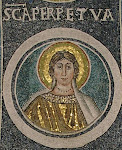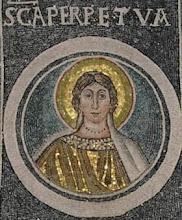a definition of magic, witchcraft, divination, fortune-telling and other similar practices, a scientific definition to magical practices, and a model in order to help uncover such practices.
The CPVPV seems to AVE showed particular concern for the spread of witchcraft with advanced technology:
The study also called for regulations to be put in place with regards to the role of telecommunication and Internet service providers to protect the public from communication and television channels that promote magic, while also penalizing those that perpetrate such crimes. It also called for the results of the study to be incorporated into the provision of Islamic Shariaa law, basic law, and criminal law.
The recent death sentence of the Lebanese man, Ali Sabat, who came to Medina for pilgrimage can be understood within this context. Sabat was recognized as the TV personality who, among other things, made predictions of the future on his TV broadcasts from his home in Lebanon. So, although Sabat had not done anything objectionable on his trip to Saudi Arabia, he was arrested, tried and convicted of witchcraft, and sentenced to death.
Here's the latest from the BBC on his situation:
The New York-based group Human Rights Watch has called on Saudi Arabia to overturn a death sentence given to a man convicted of practising witchcraft.
The organisation said Ali Sibat appeared to have been condemned because of psychic predictions he had made on Lebanese TV from his home in Beirut.
He was arrested during his pilgrimage to the Saudi city of Medina last year.
There is no legal definition of witchcraft in Saudi Arabia - a deeply conservative Muslim nation.
The country's religious authorities condemn any practices deemed un-Islamic, including horoscopes and fortune telling.
But BBC Arab affairs editor Sebastian Usher says there is still a thirst for such services in a country where widespread superstition survives under the surface of religious orthodoxy.
Human Rights Watch accused Saudi courts of "sanctioning a literal witch hunt by the religious police".
"The crime of 'witchcraft' is being used against all sorts of behaviour, with the cruel threat of state-sanctioned executions," said Sarah Leah Whitson, the group's Middle East director.
Human Rights Watch also said reports in Saudi media suggested that two other people had been arrested for witchcraft in the past month.
In addition, a Saudi woman remains on death row after being sentenced for the same crime last year.
Sky News has more details about other cases:
Human Rights Watch says two other people have been arrested on similar charges in the last month alone.
It claims a lower court in Jeddah started the trial of a Saudi this month who was arrested by the religious police and said to have smuggled a book of witchcraft into the kingdom.
In another case the religious police are said to have arrested for "sorcery" and "charlatanry" an Asian man accusing him of using supernatural powers to solve marital disputes and induce others to fall in love.
In 2006 a Jeddah court convicted an Eritrean national Muhammad Burhan for "charlatanry" because he possessed a phone book that contained writings in the Tigrinya alphabet used in Eritrea.
Human rights campaigners claim prosecutors classified the booklet as a "talisman" and the court accepted that as evidence, sentencing him to 20 months in prison and 300 lashes.





No comments:
Post a Comment